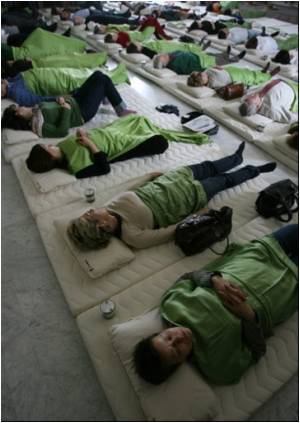Your brain tends to restore its energy in the initial hours of sleep, so that it can use it while you are awake, according to a study.

The results suggest that a surge of cellular energy may replenish brain processes needed to function normally while awake. hile it is known that a good night's rest has restorative benefits, but evidence of the actual biological processes that occur during sleep has been elusive.
Dr. Radhika Basheer and Dr. Robert McCarley, of Boston V.A. Healthcare System and Harvard Medical School, proposed that brain energy levels are key to nightly restoration.
"Our finding bears on one of the perennial conundrums in biology: the function of sleep. Somewhat surprisingly, there have been no modern-era studies of brain energy using the most sensitive measurements," said Basheer.
The authors measured levels of adenosine triphosphate (ATP), the energy currency of cells, in rats.
They found that ATP levels in four key brain regions normally active during wakefulness increased when the rats were in non-REM sleep, but were accompanied by an overall decrease in brain activity.
Advertisement
When the rats were gently nudged to stay awake three or six hours past their normal sleep times, there was no increase in ATP.
Advertisement
The energy increase may then power restorative processes absent during wakefulness, because brain cells consume large amounts of energy just performing daily waking functions.
"This research provides intriguing evidence that a sleep-dependent energy surge is needed to facilitate the restorative biosynthetic processes. The authors propose that the surge is related to decreases in brain cell activity during sleep, but it may be due to many other factors as well, including cellular signaling in the brain," said Dr. Robert Greene, of the niversity of Texas Southwestern, a sleep expert who was unaffiliated with the study.
The study is published in the latest issue of the Journal of Neuroscience.
Source-ANI















